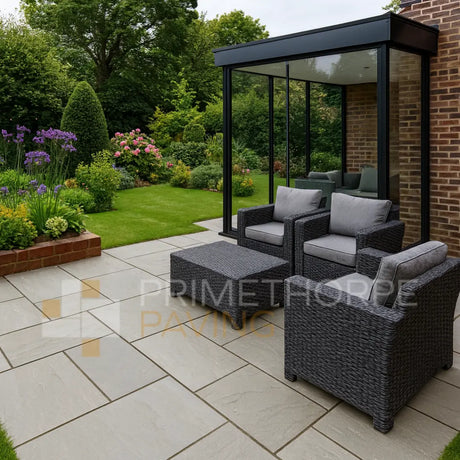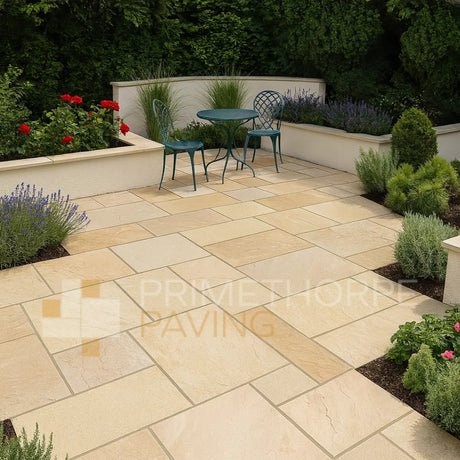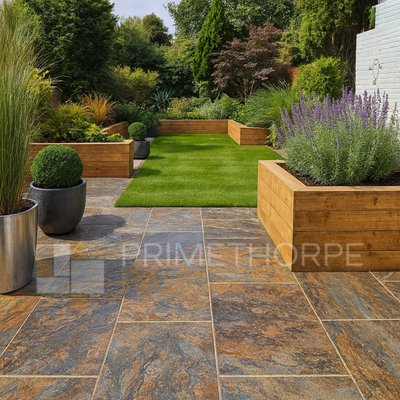-
From Regular price£20.00 per m²Unit price /Unavailable
Raj Green Indian Sandstone Paving
In stock (3152 units) -
From Regular price£22.00 per m²Unit price /Unavailable
Kandla Grey Indian Sandstone Paving
In stock (3089 units) -
From Regular price£24.00 per m²Unit price /Unavailable
Fossil Mint Indian Sandstone Paving
In stock (3946 units) -
From Regular price£22.00 per m²Unit price /Unavailable
Autumn Brown Indian Sandstone Paving
In stock (936 units) -
From Regular price£23.00 per m²Unit price /Unavailable
Rippon Buff Indian Sandstone Paving
In stock (1490 units)
Our Indian Sandstone Paving slab range is all about good quality, sturdy materials that get the job done. Each sandstone slab is made from real natural stone, so you get small variations in colour and texture that make every patio look unique. It’s strong, long-lasting, and easy to cut and lay, making it a favourite for both homeowners and landscapers. At Primethorpe Paving, we stock a wide range of sandstone colours and finishes, so whether you want something light, dark, or mixed, you’ll find an option that fits your space. It’s a simple, proven choice for patios, paths, and garden areas that need to look good and last for years.








